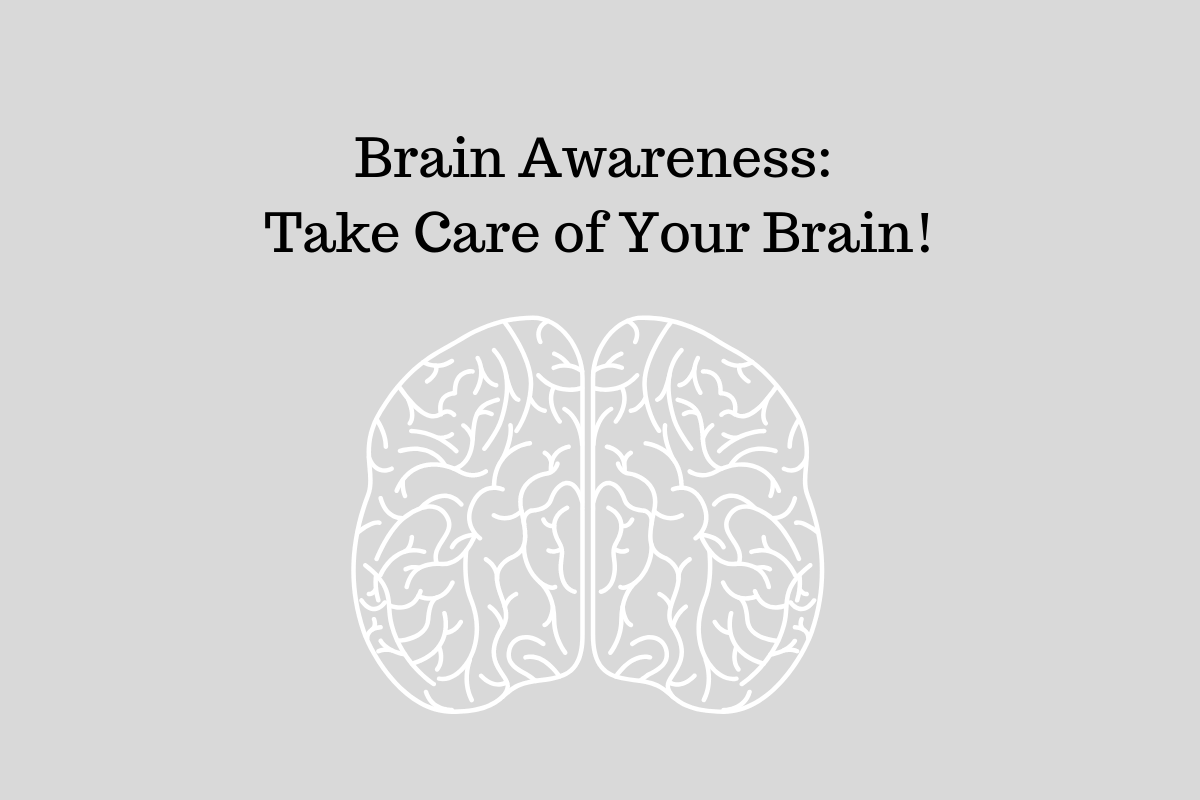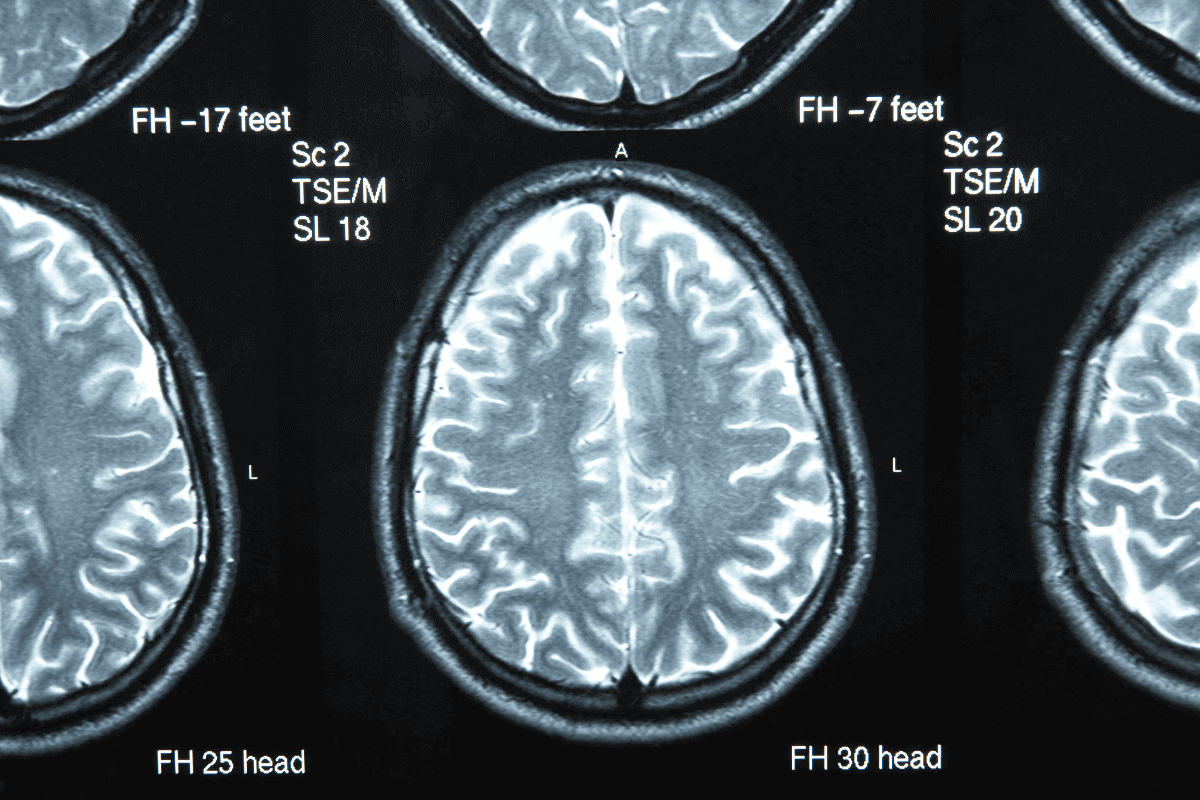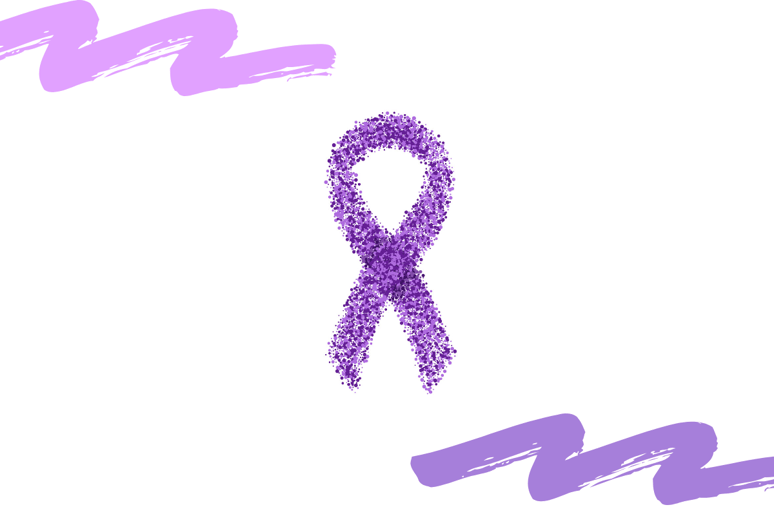
The brain is a complicated thing. It is filled with billions of neurons firing at every second, connecting and processing information at an alarming rate. It even has the capacity to generate approximately 23 watts of power when we are awake. Doctors and physicians have studied the brain for years and years, and there’s still more to learn about the brain. (1)
But what we do know that a healthy brain is important. When our brain is healthy we operate at optimum potential. A healthy, full life is dependent on the brain and what we give it.
There is so much information on brain health. Instead of giving you everything and overloading you with information, here are the key facts on how to help your noggin and how you can spread awareness.
The Basics of Brain Health
The brain is the most important organ in our bodies. Located in our central nervous system, it captures our memories and emotions, allows us to think efficiently, and regulates our breathing. Everything comes back to this three pound, fatty organ in our heads.
This is why brain health is so important.
So we can live a happy, full life.
With a healthy brain, we can enable make decisions and problem-solve, move, communicate, retain memories, and receive senses. Without any potential risks or diseases present, we are able to navigate day-to-day life unhindered.
Why Is It Important
Without our brains we couldn’t think. Feel. Exist. So what happens when our brains are compromised?
Brain health awareness is important is because it’s vital to educate ourselves on disorders, and the diseases and traumas they cause.(2)
Brain Disorders
A brain disorder occurs when there is damage or disruption to the brain after birth, including:- Traumas
- Stroke and other vascular diseases
- Lack of oxygen
- Cancer
- Degenerative Disease like Parkinson’s Disease
- Alzheimer’s and Dementia
- Childhood Cancer
- Addiction
- Epilepsy
- Brain Tumors
- Immune System Disorders
- Mental Health
- Neurological Disorders
- And Infections/Diseases
Effects of a Brain Disorder
While each of the brain disorders above has unique symptoms, there is a list of general consequences from having a brain disorder.
Cognitive effects include memory problems, fatigue and poor concentration, lack of initiative and motivation, irritability, inappropriate behavior; self-centeredness, dependency, and lack of insight, slowed responses and poor social skills, poor problem-solving, depression and lack of emotional control, and impulsive behavior.
Physical effects include movement disorders and paralysis, loss of taste and smell, dizziness and balance problems, epilepsy and seizures, headaches, eyesight and hearing problems, and chronic pain.
Types of Brain Disorders
Traumatic Brain Injuries or TBI, is caused by either a blow to the head or by the head being forced to move rapidly forward or backward.(3)
Hypoxic Injuries are cases when the brain receives little to no oxygen. Common causes include drowning and failed suicide attempts such as hanging or carbon monoxide poisoning.
Brain Tumors can restrict the blood supply to cells by exerting pressure on them or by squishing them.
Degenerative conditions involve Multiple Sclerosis, Parkinson’s disease, and Alzheimer’s disease.
- Multiple Sclerosis: Nerve cells die when the myelin that coats the nerves are removed
- Parkinson’s Disease: Loss of cells in various parts of the brain, including dopamine.
- Alzheimer’s Disease - Plaques and tangles occur in the brain later in life and leads to problems with short-term memory, disorientation, mood swings, and behavioral issues.
Stroke/Vascular diseases occur when blood flow to the brain is interrupted by a blockage or begins to bleed. It is the same thing as a heart attack, but when it happens in the brain, it is called a stroke. The effects include thought processes, comprehensions, movement and our sense. If you are suspicious of someone having a stroke, remember: think FAST.
Infections can cause harmful consequences such as death. The two major infections to be aware of is meningitis, which is the inflammation of the protective membranes and spinal cord, and encephalitis, which is a swelling of the brain caused by viruses or bacteria.
Epilepsy involves recurring episodes of abnormal electrical activity leading to violent convulsions and unconsciousness. This disorder can be caused by other disorders, such as traumatic brain injury.

Take Care Of Your Brain
Failing brain health is a public health epidemic, with 3 out of 5 Americans developing a brain disease in their lifetime.(4)
To help improve your brain health, we have provided you a list of brain boosters: six ways to influence positive change in your daily brain processes, brought to you by Cleveland Clinic.(5)
The 6 Pillars of Brain Health
- Physical Exercise- People who exercise regularly have a lower risk of developing Alzheimer’s disease. Spend up to 30 minutes a day to improve your cardiovascular health. Activities such as walking, jogging, or riding your bike outside are fantastic ways to improve your health.
- Food and Nutrition- As we grow older, we are exposed to oxidation from lifestyle and the environment. Oxidation damages brain cells. Eating foods rich in antioxidants can fend off the oxidation effects in the brain. Eating green also has brain health benefits. Bad fats such as trans fats, along with other sugar-loaded, processed foods can debilitate your brain’s function. As they say, you are what you eat.
- Medical Health- Diseases such as hypertension, diabetes, obesity, depression and anxiety, head trauma, higher cholesterol, and smoking all increase the risk of dementia. Remember to check-in with your doctor and take medications as prescribed! It is important to not ignore emotional and mental health, since the risk of mental illness increases if ignored.
- Sleep and Relaxation- A good night’s sleep energizes you, improves your mood/immune system, and may reduce buildup of beta-amyloid plaque, an abnormal protein. Practices like meditation can help improve your brain health and sleep habits. See our Sleep Awareness blog post for more information on how sleep can affect you.
- Mental Fitness- Mental exercise is just as critical as physical exercise. Doing brain exercises can improve your brain’s function and promote new brain cell growth, which is great against developing dementia. With games like Sudoku, My Brain Trainer, and Brain Age 2, brain exercises are easy to practice whenever available. Doing organic exercises are also a great tool, including doing math in your head, keeping a journal, and learning a musical instrument. The more your brain is put to the test, the more active it is!(6)
- Social Interaction- Having an active social life can protect you against memory loss. Studies have shown that people who communicate with others are memory boosters - they have the slowest rate of memory decline. It is also able to lower blood pressure and can improve life expectancy.
How to Spread Awareness
Now that you know everything you can about brain health, it's time to spread awareness! Besides talking to others about brain health via word of mouth and social media, here are other ways you can spread the word.

Brain Awareness Week occurs this week on March 11 - 17, 2019. Educate yourself and your friends on brain health and what they can do for their brains.
In tandem, June is Alzheimer’s and brain awareness month. Show your support by ordering a purple ribbon and participating in local walks/organizations. In addition, order your brain health/Alzheimer’s awareness wristbands at rapidwristbands.com.
Lastly, Visit your healthcare provider if you have any questions, comments, or concerns!
Final Thoughts:
It is important to be mindful about your mind (ha!) and remember to be proactive. It’s necessary to take care of your body but even more so to take care of your brain. Your #brainhealthmatters and so do you.
Resources:
.png)
.png)
.png)


.png)
.png)

.png)
.png)
.png)
.png)
.png)
.png)
.png)
.png)
.png)
.png)
.png)
